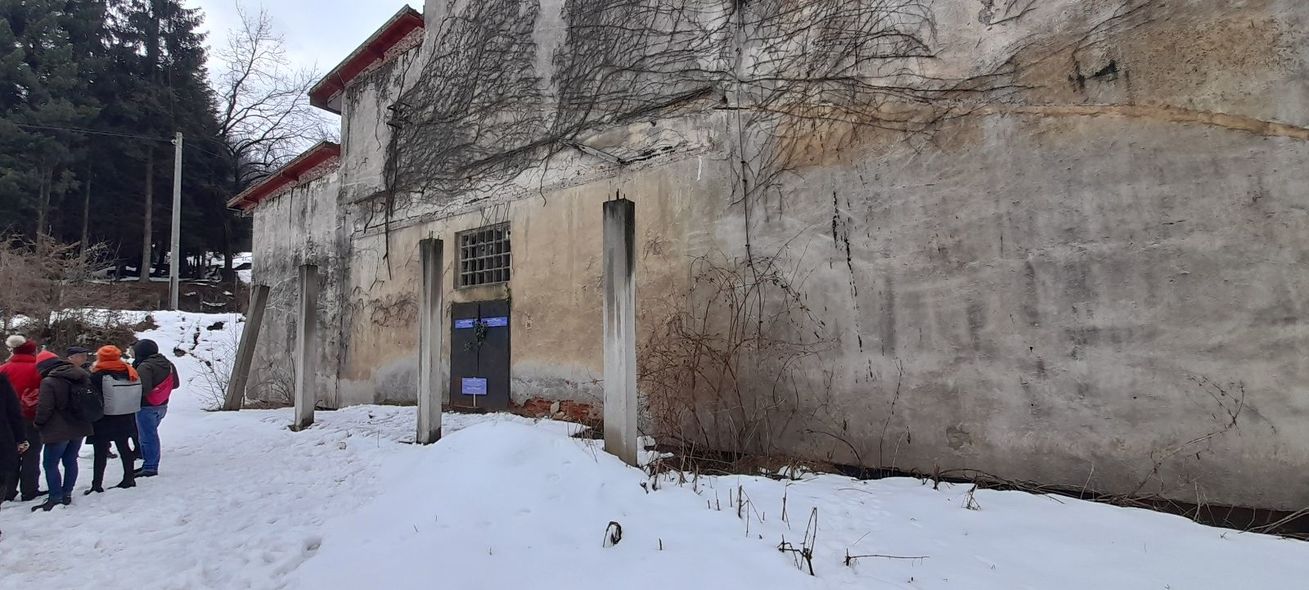The Youth Initiative for Human Rights joined former camp inmates, peace activists, journalists, and war veterans in a joint visit organized by the Center for Nonviolent Action from March 3 to 6, 2023, to mark four silos that were used as sites of detention in the area of Tarčin near Hadžići, Kaćuni near Busovača, and in Žepče and Derventa in Bosnia and Herzegovina. The Iron Bridge in Doboj where 13 prisoners were executed in June 1992 was also visited and symbolically marked.
After visiting these sites, the prison camp survivors and peace activists from BiH and the region issued a joint appeal:
Deeply convinced that all victims deserve equal respect, with our joint visit to sites of suffering, including former detention sites, we want to express human decency, share in the pain, and provide encouragement and support to each other. By jointly visiting sites such as these, we hope that they can become places of encounter, dialogue, and learning for future generations, places where we will come to remember the wartime past, not to incite hatred or revenge, but in order to warn about the tragic consequences of war that span generations. Remembering the suffering of all, whatever their ethnicity, prepared to equally condemn every crime, no matter who committed it, we want to stress the importance of respecting every victim as a path towards building the sustainable peace we want to live in.
We invite our friends, neighbors, fellow community members, and all people of good will to join us on this path of remembering all victims and recognizing all human suffering. Without denying our differences, we believe that mutual respect and understanding, based on these principles, can create space for dialogue where we can hear each other with open hearts, and learn about each other’s difficulties and needs that are so often similar.
We know that many sites of suffering, including detention facilities, have not been marked to this day, while former prisoners, survivors, and families of those who were killed are often prevented from accessing these sites. We call on the authorities, especially those at the local level, to provide support to victims fighting for their right to remembrance, not to put up obstacles, but to enable access to and permanent marking of sites of suffering. We want to make sure suffering is never repeated.
We cannot make up for human losses and suffering, but we want to do everything in our power to build up relationships of mutual recognition, respect, and trust, to stand as a bulwark against the threat of hatred among people from different communities becoming a basis for new injustices and future violence. We believe that our right to freedom and peace can only be achieved by working together, crossing the borders that have separated us since the war, and learning from our painful past.
